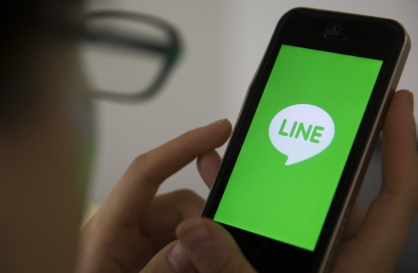Citizens are now able to recharge their smartphone and tablet PC batteries through a hydropower-generation station at Cheonggyecheon Stream in downtown Seoul.
Seoul City on Wednesday set up five booths around the stream that generate electricity using flowing water. This marked the first time a mobile-device recharging station backed by hydropower has been unveiled in Korea.
“The small-scale hydropower generation facility minimizes negative effects on the environment as it produces electricity without dams or barrages. It requires only simple turbines,” said an official.
He said the city was considering increasing the number of battery-recharging booths after gauging citizens’ reactions during a three-month trial period.
Seoul City on Wednesday set up five booths around the stream that generate electricity using flowing water. This marked the first time a mobile-device recharging station backed by hydropower has been unveiled in Korea.
“The small-scale hydropower generation facility minimizes negative effects on the environment as it produces electricity without dams or barrages. It requires only simple turbines,” said an official.
He said the city was considering increasing the number of battery-recharging booths after gauging citizens’ reactions during a three-month trial period.

The facility has been developed by Innomad, a venture start-up, and was funded by Seoulites through a website.
The project and its funding came as part of the city’s efforts to search for alternative energy by increasing the number of hydrogen power systems to secure a stable electricity supply in case of blackouts or emergencies.
Hydrogen fuel cell plants are set to provide the energy needed for hospitals, Internet data centers and residential areas in Magok-dong and Sangam-dong in western Seoul. About 10 energy suppliers including Korea Hydro and Nuclear Power Co. and Korea Midland Power Co. are participating in the project.
“The alternative power plants will supply electricity mainly to the city’s infrastructure, including subway systems and sewage facilities. Those energy firms are required to increase the supply of renewable energy to 10 percent by 2022,” said an official.
Meanwhile, the city also plans to provide citizens with phone- and tablet PC-recharging booths using solar energy around Gwanghwamun in central Seoul.
In a similar vein, the city launched a new solar energy project, to be funded mainly by local residents, earlier this year.
The project, dubbed Energy Welfare, involves building a 1-megawatt solar power plant at a cost of 2.6 billion won ($2.6 million), which is projected to produce enough electricity for about 300 households.
By Kim Yon-se (kys@heraldcorp.com)











![[Weekender] How DDP emerged as an icon of Seoul](http://res.heraldm.com/phpwas/restmb_idxmake.php?idx=644&simg=/content/image/2024/04/25/20240425050915_0.jpg&u=)
![[Today’s K-pop] NewJeans' single teasers release amid intrigue](http://res.heraldm.com/phpwas/restmb_idxmake.php?idx=644&simg=/content/image/2024/04/26/20240426050575_0.jpg&u=)





![[Herald Interview] Mistakes turn into blessings in street performance, director says](http://res.heraldm.com/phpwas/restmb_idxmake.php?idx=652&simg=/content/image/2024/04/28/20240428050150_0.jpg&u=)
